After the DDW, it turns out that – despite huge efforts by the entire team – we were not able to make a profit with our restaurants and hotel. For the first time, I am thinking about filing for bankruptcy. We pulled out all the stops to temporarily open the restaurant down the street to generate extra turnover and build up some reserves, despite it not being completely finished yet. Instead, it turns out we turned out to have made a loss. I am disillusioned at the failure of the organisation. With the accountant and Wouter Jongepier, we meet remotely from behind our computers to decide whether it is wise to file for bankruptcy of the restaurants and hotel. Just before the DDW, we finally found a chef after a year. There finally seems to be some momentum in the job market. I put everything in perspective and come to the conclusion that the losses are not that bad. If we pay close attention to costs, we can work on the final move to the big restaurant from the smaller lobby restaurant without too many losses.
My way of management does not always guarantee good results, as is evident now. I always think everyone can do everything and give people a lot of responsibility. Very often I am surprised by personal developments and extraordinary achievements, but things also often don’t go the way I would like them to. Despite the fact that I can actually see that things are not going well, I keep thinking that everyone can do everything and keep trying to get the whole thing going. This has produced great results in the past, but this time I should have intervened earlier. I should have helped people by letting them do what they can and not what they struggle with. I decide (yet) to add another manager to the team who does take care of things. Things improve almost immediately. We set our sights on opening the restaurant as soon as possible to create the turnover to match the number of people we employ. It has been an extremely absurd and busy period and there are accurate financial results now for the first time in ages. The results turn out to be much worse than I thought. A lot of extra money is needed on a monthly basis. I don’t actually believe the team is capable of making the necessary changes, let alone running the restaurant. In recent months, the food in the lobby has barely improved and no work has been done on the menu for the restaurant downstairs, even though this was explicitly set as a goal. It is no longer sustainable and hopeless. No other decision is left but to file for bankruptcy of ‘De Horeca van Piet Hein Eek’ itself. It’s a bit sour though, as the hotel has only been open for a year and it is running better and better. The restaurant down the street, which we renovated specifically to make it more beautiful, but also to create a better business model, is not even open yet.
I send another email to Wouter. I’ve known him for years, he’s a lawyer and if anyone knows how to go into bankruptcy, it’s him! Normally he is on the other side of the table, but now he is advising me. Since the property and inventory are in another private company and this arrangement is consistently reflected in the bookkeeping, I assume there is no risk here. Wouter agrees, but is apprehensive of a different view from the trustee, possibly resulting in a long-term conflict. He warns me against the whims of fate. You can just as easily get a trustee on a warpath as one who wants to resolve it. He thinks, entirely in line with how I personally think about what people are capable of, that I can handle the bankruptcy just fine by myself. He is present in the background.
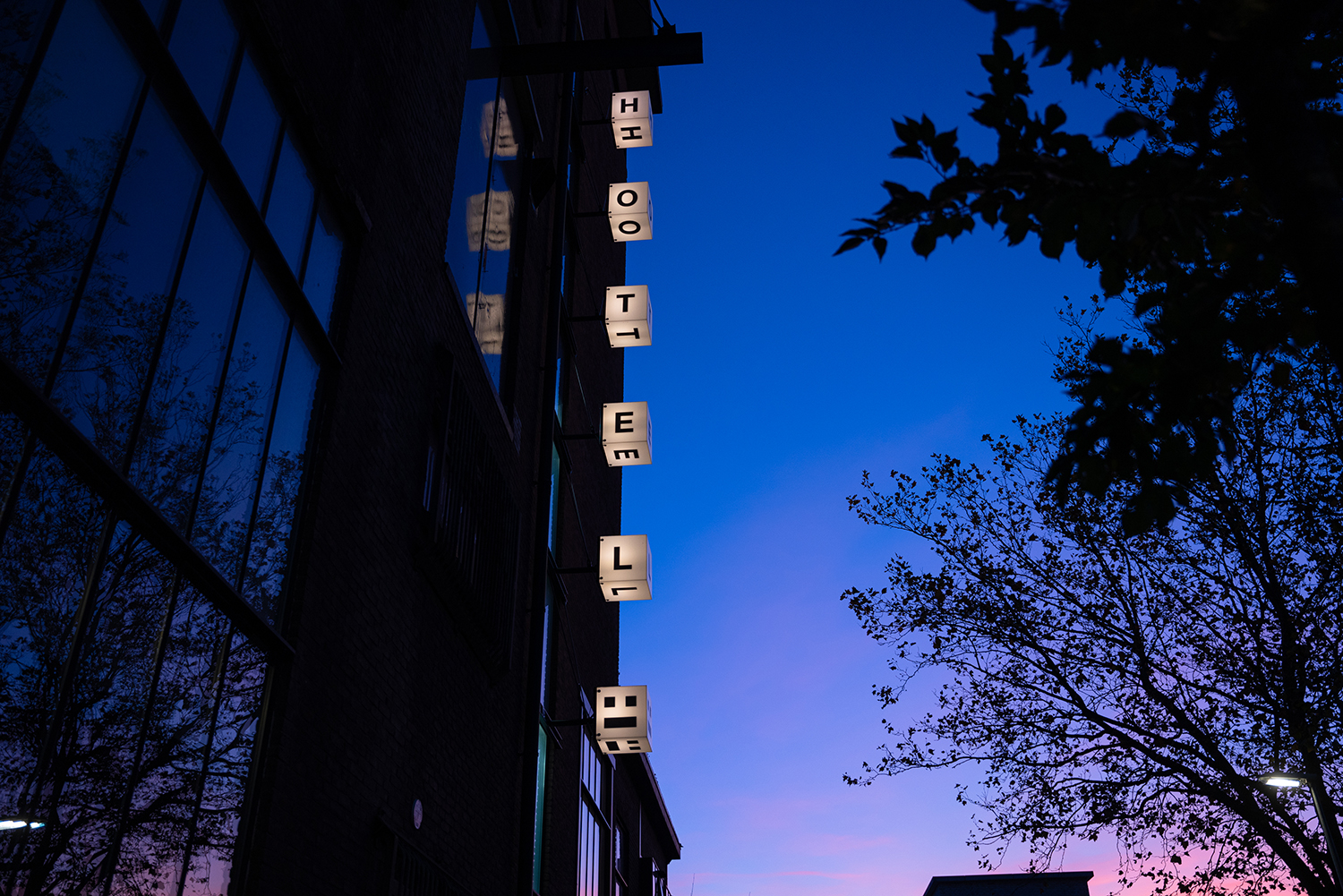
Monday 20 February
On Carnival Monday, 20 February, I will go to the Paleis van Justitie in den Bosch. That is actually quite a nice name, it emphasises the value of law in our society. It turns out not to be a palace, but a court in a modern building that does not fit the name. I deliver a pile of paperwork that I completed over the weekend. This allows the sentence to be delivered the following day. There is a rush because it means the staff will get paid earlier. At the front desk, I ask if they can let me know if everything is in order so that it doesn’t take another week. I can make a call at the end of the afternoon. I walk back to the car park and pass all sorts of groups dressed up in carnival costumes on their way into town to party. Pretty soon I get a call saying the pieces are in order. In the afternoon, I send an e-mail to the bank explaining the situation and that I am going to file for bankruptcy for my hospitality business. The following day, the bankruptcy is declared.
Tuesday 21 February
The same afternoon, I receive a call from Max van de Wolde on behalf of the trustee. The bankruptcy is being handled by a team of the trustee’s staff and he is one of them. He is a pleasant man who knows how to tread well between his role of securing the assets for the creditors and informing me what kind of procedure I have ended up in. I tell the story of how it could have come to this and show him around the building. He pays particular attention to all kinds of liquor and takes photographs. We discuss how to proceed. The preference is to stay open so that as little value as possible is lost, which is important for both parties. There should be a cash flow forecast showing that there will be money left over if we stay open for a month, as long as the dismissal procedure lasts. It is only a month and not six weeks as I expected, because most staff do not work that long and the dismissal procedure only takes four weeks in that case. Max asks to make projections with and without continuing to pay wages. I explain that wages are precisely where the expenses have spiralled out of control. So the variant with wages will not produce a workable situation. Without wages, which will still be paid by the unemployment insurance agency, there will certainly be a positive result. The trustee is paid out of the assets and what remains is for the remaining creditors. We are going for a 30-day ‘cooling-off period’ to explore the possibilities for a restart.
As the trustee decides the next day to come and see for himself after all, I have to tell the story again. The discussions focus on who will operate the hotel-restaurant after the bankruptcy. The property and inventory are mine, so I can decide whether and to whom to rent it out. The question is: what do I want? I have since found out that success depends on the people running it, especially the kitchen and the chef. So I have no preference in which format it continues. Whether a chef is employed by me or wants to rent the restaurant is irrelevant to me. As long as he or she fits in and feels good in the environment we have created. The slogan ‘cooking like we craft furniture’ resurfaces. This is the time to finally find a chef who cooks like we craft! For the hotel it is a bit more delicate, because that is much more manageable and because the hotel is even more explicitly integrated into the overall concept. The hotel is like an extension of the showroom. The lobby is even part of the Wonder Room where our finest objects are brought together. So the trustee is dependent on me as a landlord. We have based the forecast on how things have gone in the last six weeks. It could be that it will be much busier because of the buzz, but it is also conceivable that the bankruptcy will actually be a deterrent. At the end of the day, I send the cash flow forecast to Max. It is – as usual with me – not a standard document, but a kind of story where the assumptions are unusual but as realistic as possible to paint as reliable a picture as I can.
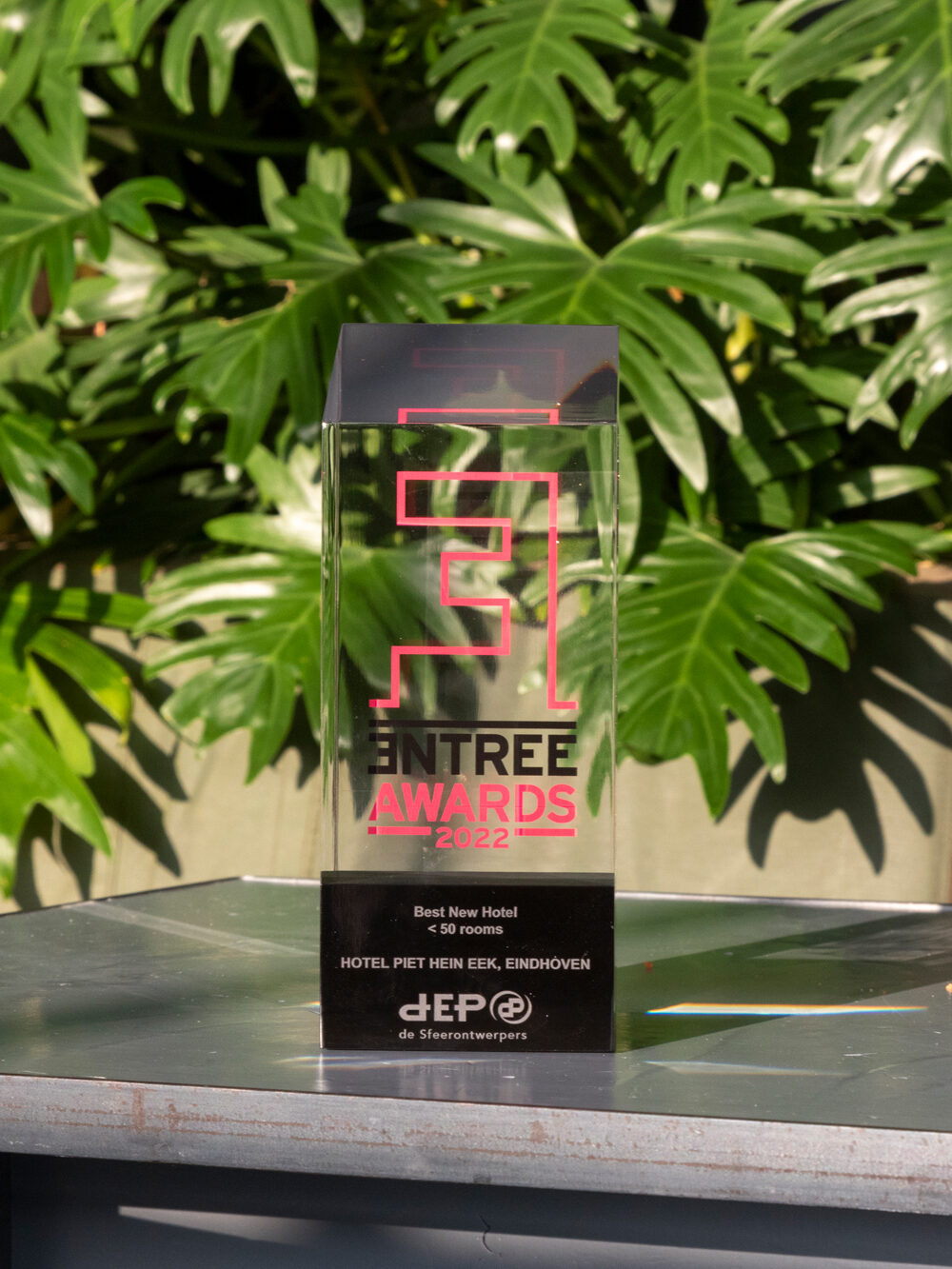
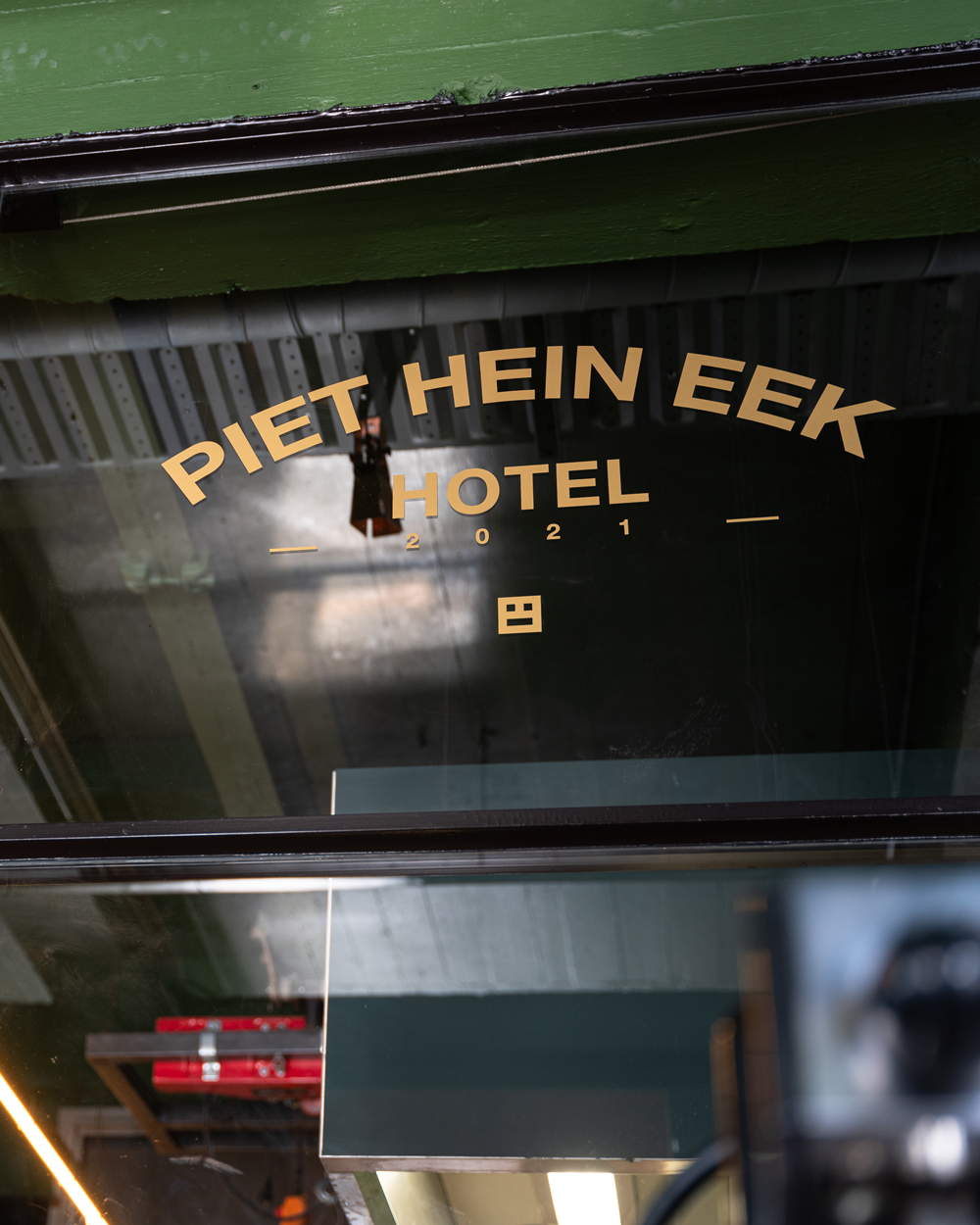
Wednesday 22 February
I plan to send an email to my friends on Thursday telling them that I have filed for bankruptcy for my hotel and restaurants. Especially also to explain how it came about and that it might also be a relief and will hopefully open up opportunities. I hope it succeeds before it hits the press, but those hopes are vain. The day after the verdict, it is put out by the court and makes its way to the editors of the Eindhovens Dagblad. I am called by the newspaper and the interview, like the talks with the trustee, is very constructive. The journalist also calls the trustee who, like me, tells me that we are still discussing. The intention is to stay open to minimise the damage and create time to find a party willing to take over. The same afternoon, the article appears on the internet and the following morning there is a large article in the newspaper. The article outlines an accurate account of events. It, unlike many other interviews I have given, matches the conversation we had. We thought of making the news of the bankruptcy public as late as possible. This gives us more to talk about and hopefully we can tell the whole process with one or a few articles. The day after the article, another announcement appears stating that we are open ‘normally’. We have had positive reports and there seems to be little further attention, so we decide not (yet) to send the press release we have readied. On the day the article appears in the newspaper, I send a fairly extensive e-mail to friends. I end the mail by saying I have a plan that I will inform them of as soon as there is a little more information and clarity.
We have to open for over a month with a bankrupt restaurant and staff who have had a tough time and don’t know what to expect. I consider cooking and serving the food myself with family, friends and staff. I love cooking and have been thinking for years that maybe I should do it myself instead. Because of busyness and because the restaurant should also be run by the chef, I have always refrained. That is very wise, but in this situation, it is quite possible to take matters into my own hands in a fun way for a month in an amateurish way. Instead of sitting by, we are all going to make a big feast of it. We are going to pamper the guests and try to create the most fun evenings. I hope some friends with other qualities will also want to come and perform or show their skills. The proceeds from all that energy may be for the trustee, but it also creates better opportunities for the future. In the evening, I tell Stefanie about the plan. She is not very enthusiastic, because then I won’t be home in the evenings for a month! The next morning, she already thinks it is a fun and good idea.
Wouter has long felt that I should concentrate on the production business and find an operator for the hospitality business. He also understands very well that the synergy between the hospitality business and the rest of the businesses is high. So it is not so easy to find the right party for this. I am more and more convinced that it is just about finding the right people and that the format does not matter so much. Soon after we stepped into this adventure, Wouter sent me an article on the subject of a flamboyant chef. I text him what he means by sharing this article without further explanation. He knows this chef from the past, when his business went bankrupt. They are still friends and he is not happy with his job now. According to Wouter, when we meet, it is either friendship for life or it doesn’t work out at all! I read the article and think, this man might cook like we craft furniture. After the newspaper report, a whole number of responses from interested parties reach the trustee and I get a number of messages myself. The process and publicity surrounding the bankruptcy suddenly create all sorts of possibilities and opportunities.


Thursday 23 February
Max calls me at 2 o’clock on Thursday to meet at their office with the aim of reaching a final agreement. On arrival, Lodewijk Hox, a substitute trustee, turns out to have joined them because the appointed trustee has the flu. He briefly outlines the purpose of this meeting and who is at the table. He also mentions Wouter as a consultant and notes that he did some very substantial work. I maintain that he is a friend.
I tell the whole story for the third time and end with the question, where to go from here? The trustee asks me straight up if I want to continue the hotel and restaurant myself. I reply that I have since found out that for me it is not about the format, but about people. If a chef comes along who is a perfect fit and wants to be employed, I am fine with doing it myself. But if he or she wants to rent from me, I’m also fine with it. As long as the operator feels comfortable in the environment I created, because it has to remain a Piet Hein Eek story. The same applies to the hotel, but it is less prominent. The answer is not a yes or no and it does not look like what the trustee was hoping for.
He continues the conversation by saying that based on the figures I provided, they have been thinking, or rather, cracking their brains about the possibility of keeping the hotel and restaurant open for thirty days. A trustee likes certainty and does not want to undertake any business at all. Staying open for thirty days with an uncertain outcome and with a landlord (i.e. me) who can also just turn down a potential applicant is not exactly the scenario they are comfortable with. They have another proposal; I should take over the assets all at once and pay an amount up front. Income and expenses from the date of bankruptcy are mine. I get to decide which colleagues I want to continue with and must rehire them (if they also want to) starting this March. He backs up this proposal with a number of arguments that are mostly to their own advantage. The revenue is certain and the risk for doing business lies with me. The costs for the trustee are much lower because they don’t have to keep an eye on things during that month and we rehire some of the staff after the bankruptcy. So fewer people flow to the unemployment insurance agency that way. Who will operate the restaurant and hotel is no longer their concern, they are not dependent on me regarding renting. My advantage is that I immediately have the reins back in my hands and also have no further costs to deal with. And in a way it’s pocket-to-pocket, because there is also income against the sum to be paid. Having the reins back in my own hands is also worth something to me. The proposal surprises me, something I am not used to; normally I am the one who comes up with surprising proposals. The pros and cons for both parties are clear, and that it leads to much lower costs and risk and higher returns for the trustee is also clear. Especially when I notice that the amount they want to be paid up front is higher than what came out of the forecast. I notice that the amount is non-negotiable. They believe they should have actually asked for more in the first place. I see the deal as a lump-sum deal where there is thus a one-off amount paid for the entire assets, with no differentiation. Despite the fact that the bankruptcy was filed for a reason and there are little or no funds, I indicate that the proposal is negotiable based on the lump-sum idea. I do still ask if there could be any catch. The whole proposal is taken through in general terms based on an example. At one point, it talks about the assets that were in the bank account when we went bankrupt. In my view, these are mine in this deal, but that is not common in the trustees’ world. Later, Wouter confirms this. I am not a trustee and disagree. ‘A deal is a deal’, but even on this point the trustee is unwavering, until they figure out for themselves that it includes down payments for hotel stays. These should actually be deducted. Thinking about this and finding that these deposits exceeded the amount that was in the account, the idea is again ‘unceremoniously’ quickly thrown in the bin.
We agree to disagree and note that we have a very different way of thinking. We discuss two more points; the valuation of inventory and again how in practice we have transferred ownership of inventory to another private company. The way this has been handled in the bookkeeping does need to be accepted. When we say goodbye, there is a sum and we agree that the trustee will write down the proposal by the end of the day in line with what we discussed, i.e. including disagreements, so that I can respond to it the next day. As I drive back and think about the proposal, I realise that in the new proposal I will have to get costs under control almost immediately and continue with a slimmed-down team that will now again be just too small. The advantage is that we are working with the colleagues we want to continue with and my idea of cooking and serving with friends for a month is now a necessity!
Meanwhile, I phoned Sietske from Triodos Bank. I always have very good contact with the bank and have been through many stressful moments. They have never let me down or disappointed me until now. But: it is not without reason that it is often said about the relationship with a bank that they are not there when you need them (e.g. in case of bankruptcy). Once again, I get a pragmatic response: how will bankruptcy affect the balance sheet (equity must remain large enough) and will the capacity to pay interest and principal be compromised? I write a piece and send it to the accountant who adds his information. The bottom line is that things will only get better. The debts to my other businesses were already provided for when the last figures were drawn up and, because of the bankruptcy, I may even deduct them from profits in the coming year. All other debts I am getting rid of. Of course, the most important thing is to put an end to the continuously mounting debts and it will be an interlude after which we will definitely be able to make the investments pay off.
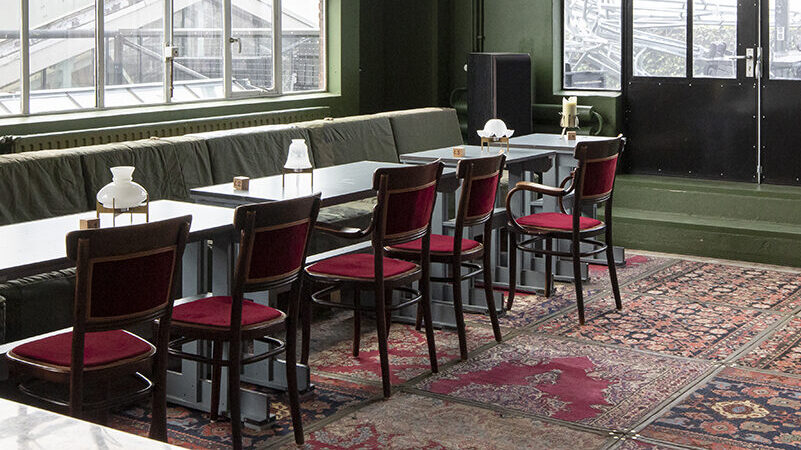
Friday 24 February
Friday morning I get the email with the trustee’s proposal. It is as he announced, with no disagreements resolved, so basically it is as they would like it. Somewhat irritating to me, though, because there are points we did agree on that are not included in the agreement. The main point is that we are trying to reach an agreement through a lump sum. I agree on the amount and that they can keep the balance that was in the account at the time of bankruptcy, but that differences regarding the valuation of the stock and inventory are supposed to be included in the lump sum. About the inventory, I make a deal anyway. It’s mainly liquor and I know its value is lower than what is in the books. Should they think it is worth more, I allow them to file the excess. Despite my assertions about the value, based on what they themselves call their gut feeling, they maintain that they intend to have the liquor stock valued. They also include in the agreement that the inventory does not belong to the hospitality department with the note that random checks will be carried out. In my view, the basic premise is that the purpose of the random checks is to establish that my claims are true and not to nitpick behind the comma. That is not worth it and there is no time for it. After consulting with Wouter, I write a response in which I agree with most of the proposal. The emphasis should be on the lump sum, trust and a smooth process. The trustee will work out the agreement and try to send it over the weekend or by Monday at the latest.
Larger companies, like newspapers, appear to be constantly aware of bankruptcies and are the first to react. The Hanos promptly stops delivering and will only deliver again after I agree with them that I will pay an outstanding invoice that is not in the assets and that from now on we will pay on delivery. Then, to our annoyance, the bill is still blocked twice, presumably because they are not communicating internally or perhaps because they disagree among themselves. Meanwhile, the news of the bankruptcy is widely reported in Eindhoven and we get the first angry suppliers at the door. Almost immediately after the bankruptcy, I had discussed that we would call the suppliers to reassure them and ask for their cooperation. Apparently, this did not work, or only partially. The wine supplier walks in while the restaurant is packed to the brim and makes a lot of fuss. Doortje calls me to ask what to do. We have been instructed to call the trustee in cases like this. In principle, everything is out of the trustee’s assets and it is therefore theft if a supplier picks up his things. This supplier knows where his stuff is and takes it, we are too late to intervene. Perhaps that’s for the best, because at least he will have his wine back. Doortje is the one who buys the wine and is so upset, however, that she definitely does not want to buy from this man she knows so well. The bankruptcy seems to attract a lot of curious people, as it is a lot busier. This is followed by a few more squabbles with suppliers that I have to smooth out. What I consider smaller sums of money are often quite large for them. That is why I have also insisted to the trustee that the suppliers be paid as part of our agreement. But of course the suppliers don’t know that, nor that we are close to an agreement. I shouldn’t have asked staff to call to smooth things over, but should have done it myself. For some suppliers, it is alarming and drastic if they would not get paid.
I notice for the first time in ages that I have a ringing in my ears again. The months or maybe years before I got divorced, I had this ringing in my ears constantly. It’s not just a ringing in my ears either, but also something of a compressed sensation between my ears. Then I thought it was old age, but when things got calmer and less emotional after my divorce, it was suddenly gone. As far as I feel, I am not stressed, but apparently that feeling is wrong!
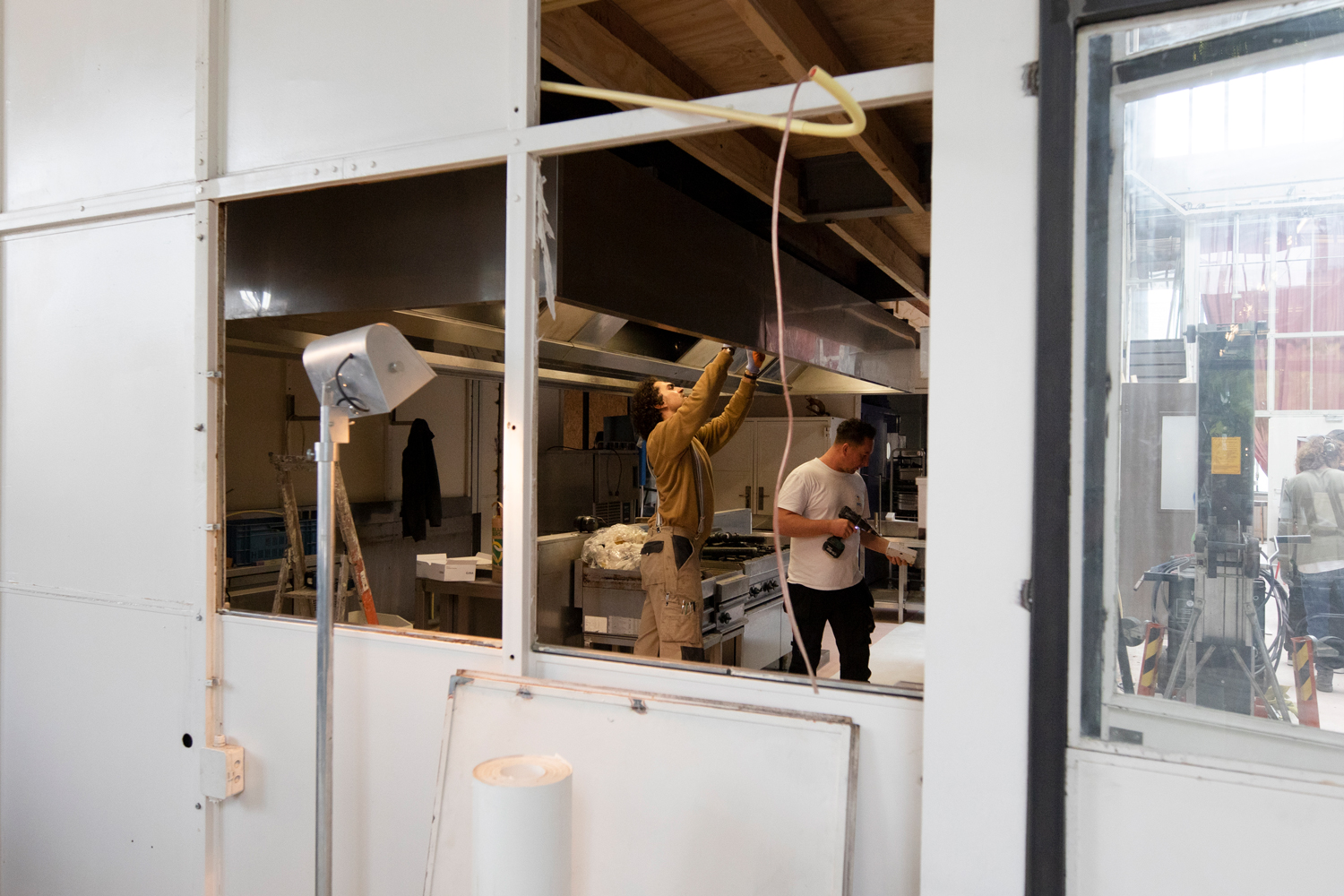
Sunday 26 February
On Sunday, I have an appointment with the chef Wouter showed me and I go to the office a bit early to write this blog in advance. For the first time in a few weeks, I slept really well and am rested. The writing goes well and I forget the time. At a quarter to two, three quarters of an hour after we had agreed to meet, I text the chef, who immediately replies saying that our appointment is not until next Sunday. I didn’t read his text carefully. Next week might be better too, because everything will be over by then!
I go for a walk on the moors with Roos, one of my daughters. Just as we conclude that we are lost, in a place I have walked hundreds of times, I see a missed call from the office. I immediately realise that I made an appointment this morning for wine tasting this afternoon, so that we can serve wine again next week. We drive straight to the office. Wine tasting takes time, but I can immediately join Doortje to taste and make decisions.
On Sunday afternoon, I receive the trustee’s proposal. It is again broadly in line with what we discussed, but again, the points I specifically made have not been incorporated into the proposal. In particular, the lump sum is not mentioned, leaving room for tinkering. The nature of random checks is also again not made clear, leaving the possibility that small details could lead to big problems.
Monday 27 February
Monday morning, after consulting with Wouter, I send my response. I speak to the trustee by phone and we happily conclude again that the differences are mainly due to ‘thinking differently’. The same morning we meet at the Vestedatoren, a building by Jo Coenen, and one of the first beautiful buildings built in Eindhoven. The law firm keeps its offices here on the ground and first floors. We change the contract so that we are both in agreement. The list of drinks including wines that are too old to serve has been sent to an expert and the amount is within the ranges, so the reservation regarding the stock can be dropped. It still has to be read by the real trustee, who has since recovered, and Wouter and then it can go to the supervisory magistrate for court approval.
Tuesday 28 February
On Tuesday morning, staff from the trustee are coming by to look at the inventory. They are two ladies, both lawyers I assume. One lady has been there from the beginning and is friendly and seems to trust me. The other lady is not unfriendly, but extremely pragmatic. She talks slowly and asks a lot, which makes her seem very suspicious. After getting acquainted in the office, I show them around. The sceptical lady asks me all her questions. I try to convince her that almost everything is neatly kept, but that I am not on top of the administration and that it will not be 100% perfect. I explain that since yesterday we also have an initial agreement that we will only deviate from the agreement if there is a proverbial Lamborghini in the garage. The amount is capped at 15 thousand euros. There is virtually nothing with that value, so I shouldn’t worry. But she keeps asking; and that computer? I say yes, you might have a point there. I can very well imagine that if they need a computer here, they just buy it? I ask if that matters, but she doesn’t respond. Actually, the whole visit follows the same pattern. In the kitchen of the restaurant downstairs where there are very old appliances, she again asks to demonstrate that the appliances belong to the property private company and in any case do not belong to the hospitality private company! She also found another item in the column balance sheet of 26K with something like inventory small purchases. This morning, I phoned the accountant and asked if he might have something of inventory in the annual records. There turned out to be a very accurate list of all investments in the hotel. When I sent the list, I expected that this would be enough and the whole audit that is taking place now would be cancelled. At the end of the tour, the stern lady seems somewhat calmer. We say goodbye with the agreement that, in terms of random checks, I get a list of things that I have to prove are not from the hospitality private company because someone else has them (just not from the hospitality is not enough).
When I get the list, I start working on it. It turns out that the TV, as well as towels, bedding, all the kitchen appliances and much more are neatly included in the documents provided by the accountant. Apparently, they didn’t even bother to study the information provided. I find another document in which all the art in the building is meticulously written down and our ERP system – which I thought would be the only source – also contains a lot of useful information. The questions are quite general and actually cover all the objects in all the rooms. Within a few hours, I have sent adequate information for more than 95 % of what was requested. When I have Lodewijk on the phone, he says I should be happy with such good advisers. In the evening while cooking, I think about what happened today and get a bit angry. They hold a random check and I have to prove just about everything. This is not a random check, but a full audit. Over coffee, I send an email that I’m pretty pissed off. Later in the evening, I worry that I may have stepped on the wrong foot, but I am really irritated about the way things are going. In the evening, I am unusually tired and when Steef comes home, we go straight to bed. The next morning, I hear that when I fell asleep pretty much right away, she made me snore loudly. She always sleeps perfectly fine anyway and I needed it. For the second part of the night, she was sleeping wonderfully next to me!
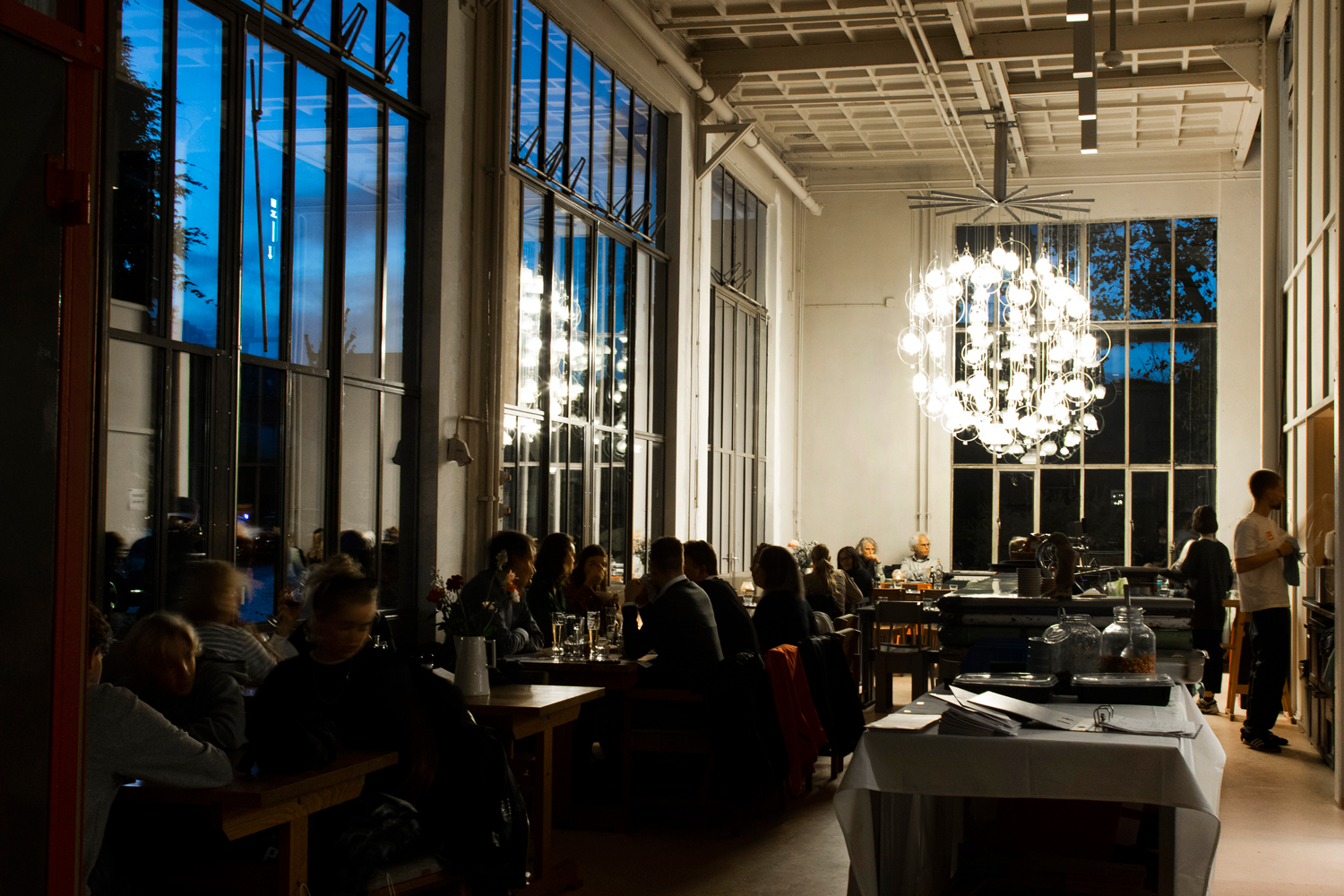
Wednesday 1 March
First thing the next morning, I send a text to Lodewijk to say that although I am pissed, it is no big deal. He replies that he did not perceive the message as furious, but as concerned and that he can understand that. A little later, we call and the conversation proceeds somewhat tactfully. It turns out there is some tension internally about how things are going. He says he trusts me. The agreements we made are based on that and the audit should also aim to confirm this trust. The trustee himself is suspicious and wants a full audit. We are getting along through talking and I feel a bit more comfortable again. The proposal sent yesterday is agreed as far as I am concerned because the only change is that Triodos Bank has to give its approval, which makes sense. Lodewijk reports that there are still some changes in it. We are looking at the agreement again. There are only a few changes and all but one are logical. The amount that may be disputed regarding inventory has been reduced from 15 to 5 thousand euros. After I sent proof of practically everything yesterday, it doesn’t matter that much, but I don’t like it. Later I reflect that it is not actually ethical to appoint a substitute and have them make arrangements only to come back to it. I, perhaps very unwisely, send another email about it. Because in practice it will not pose a problem, and because I expect that before I sign it, it will be confirmed that it is also agreed with regard to the inventory, I give my agreement by e-mail. The document is prepared and sent to the supervisory judge. Immediately after the conversation, I start calling to get the bank’s approval and the notary’s deed of incorporation in time. Both confirm that it will be done, hopefully today and otherwise tomorrow at the latest.
I spend the rest of the day writing and putting out fires to make sure suppliers stay or resupply. When I call them personally, everyone turns out to be quite willing to cooperate. I also try to prepare as much as possible for when staff are laid off and some are told they can rejoin. There have to be people to handle the work and more importantly, support colleagues, should emotions run high. I want to get home before six to do some shopping at the toko because I want to try something in advance for next week at the restaurant. When I get home and put the grocery bag on the kitchen counter, I get a call from Sebas. He was supposed to drop by around six to talk about the possibilities of running the Dakbar. Since or perhaps because of Corona, he has started importing wines from the former Eastern Bloc and would like to start his own wine bar. He is a nice guy with a good network and, to my mind, he would be a great fit. We take the lift to the Dakbar and then talk about the possibilities and plans in the office. I tell him where we are coming from and what I have in mind and also of the plan to start cooking by myself for a month. And that if he thinks the Dakbar could be something for him, he can try it out for the next month. I should then write him into the plan and make sure this is included in the communication and attention we get. It does seem certain that with the news of the restart and a month of eating with Piet Hein Eek behind the stovetop, we will get a lot of attention. The bankruptcy seems a bit like an advertising campaign. Suddenly we are getting attention, people with ideas are coming up to us and staff want to come and work! We have a nice conversation and say a positive goodbye. Sebas is very busy and can therefore only work on Mondays and Wednesdays. Monday evening has always been an ideal Dakbar moment for me because most restaurants are closed then and there are hotel guests. You can run the Dakbar on your own, so even with few guests it’s soon profitable. And who knows, if you handle it right, it might actually get busy.
Back home, I unpack the groceries. Steef goes out to dinner with a friend and I start cooking. It turns out not to be tasty, whereas it was super tasty last time. In the evening, I think about the fact that tomorrow will be an intense day. The staff have not been included in the development that we are going to restart immediately. They will be told immediately after the process of dismissal by the Employee Insurance Agency instead of after a month, who can and cannot continue working. I could not include them in this process, as it might cause it to fail. I send another message to Lodewijk that I have consulted with Wouter and that he thinks it would be unwise for me to sign without clarity on the inventory. I haven’t consulted with Wouter at all, who is enjoying skiing. The message without him knowing about it will do its job just as well as if he did know about it. The same evening I get a response from Lodewijk that he thinks it will indeed be in order tomorrow.

Thursday 2 March
At night, I have very bad pains in my chest. A few years ago in Milan, when we were at the Salone, I had pleurisy. This pain seems the same, it’s just on the other side. It’s quite manageable, but that’s how it started back then as well, and within a night it had turned from quite manageable to being admitted to the hospital screaming in pain. There were also advantages then: Steef came to Milan immediately, in fact. She didn’t actually want to come, but everyone thought I was dying! When I was discharged on Wednesday, we had a lovely dinner together every afternoon and evening. It left me with a few ‘pleurisy meals’. My version of that week is that we had a wonderful time and Steef especially remembers getting on the plane in a rush and in panic. I hate to think of it becoming that painful again. In the middle of the night, it gets more painful and I don’t really know how to lie anymore. Steef asks if there is anything she can do. Maybe massaging will help, as my shoulder is also stiff. She massages my shoulder and rubs out the pain. The rest of the night I sleep well.
The next morning, I first have to go to the hospital for an appointment that I had forgotten in all the hustle and bustle of the previous week. They are going to take X-rays of my right knee that always hurts. At the moment it is bothering me a little less, you will always see. But the photos do show the wear and tear. It’s actually not too bad, it’s mainly the inside! No new knee for the time being and just hanging on. In the waiting room, I text and e-mail a lot to arrange everything as best I can. The bank still has to approve the transaction and the notary has to set up the new private company. The bank sends the documents quite early in the morning and eventually, when I get hold of the notary, it turns out that he has yet to draw up the deed. He has a lot of appointments that day, so can’t actually do it before the end of the morning. Finally, he comes up with the proposal to come by in 10 minutes and sign the deed.
Just before I go to the notary, it turns out that the meeting room where we planned to sit with the staff has been rented out. Fortunately, we did not stay open for no reason, so I should have checked whether the room was available. Eventually, the whole group ends up in the canteen. I don’t have to sit in, which makes sense because the trustee has fired the people and the Employee Insurance Agency is taking care of the rest. Not only are the people being dismissed today, but some of them will thus be offered employment again. I discussed this with the lady from the Employee Insurance Agency on Monday and assume she will call me when she is ready. I’m still very busy with all sorts of things that need to be sorted out, so I notice too late that people are already walking out. It is not communicated that they have to wait for me to make my statement. I ask them to call and text everyone like hell and ask them to come back. When everyone is back, we are still far from complete because there are quite a few students among them who are at school. Once the ladies from the unemployment office have left, I stammeringly explain that a surprising agreement was made last week. Instead of staying open for a month and then being fired or offered a new job, it is all happening today. I discussed the sensibility of separating those who are not offered a job, which is a kind of layoff. All but a few are painful conversations. Then I walk over to the people who do get job offers. Then it turns out that there are quite a few people who don’t want to continue working. Sometimes someone has a valid explanation, but with most I question it. It seems that some people are happy not to work for a month and still get paid. It is clear from a few that they are angry, even though they themselves wanted to quit a long time ago. Actually, it doesn’t really matter, because it is very emotional and everyone has done their best tremendously and for some it is now over. I soon realise that at least now it is clear who has heart for the cause and who does not! Fortunately, the people from the hotel appear to want to continue working in the restaurant. This was the only functioning part of the business. We note that we are short staffed this way and that we cannot actually open in the evenings. We decide to open on a limited basis for the next few days because of the staff shortage. From Tuesday, I am going to make it into a feast with friends!
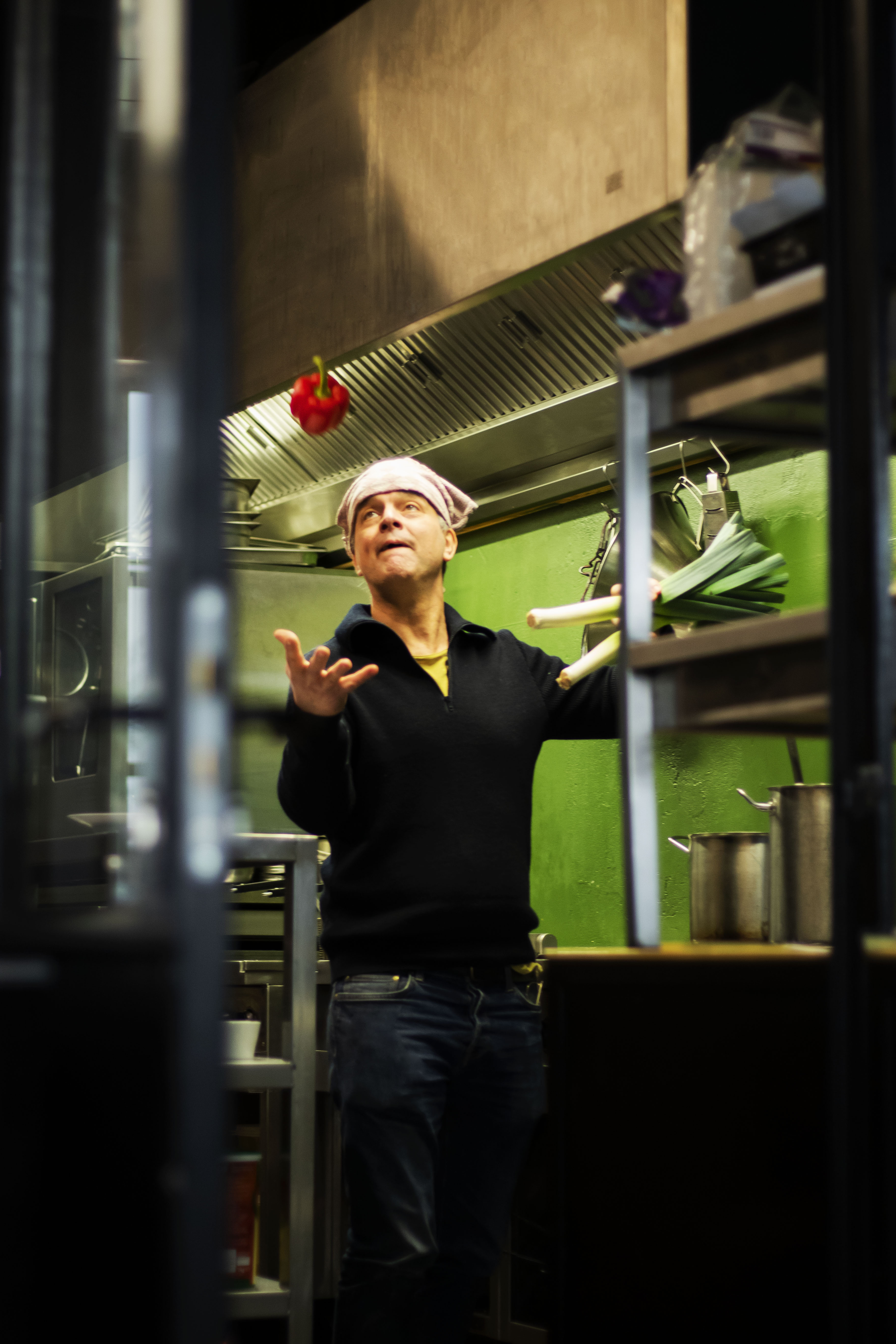
This post is also available in: NL
« Back to blog